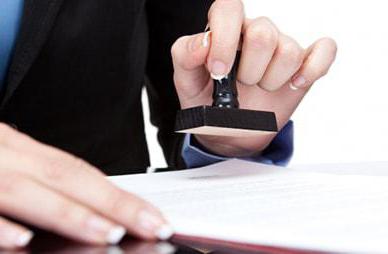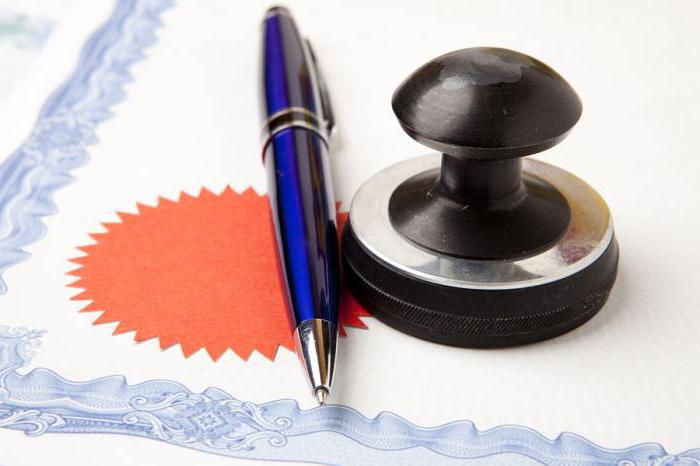In this article we will get acquainted with the apostille of documents. What it is, where to exhibit it, why it is needed, and much more the reader will find here. We will also consider putting this stamp on specific types of documents.
Familiarization with the concept

Apostille is a special form of filling, having an international character, intended to confirm the legality of a certain document in the territory of different countries of the world that have recognized this form as legalized. The “apostille” stamps are affixed both on the original documents and on their copies.
Apostille is a stamp that does not require other types of documentary legalization and certification. It is official for any internal bodies participating in the Convention of the countries. Its presence is not necessary if there are grounds for canceling or simplifying the legalization of the document.
Form Details
In accordance with the standard of the Hague Convention, signed in 1961, an apostille is a square shape with a side length of at least nine cm and must conform to a specific pattern. Also in the apostille should be indicated:
- Full name of the country issuing the apostille.
- Surname and initials of the subject who signed the paper in need of certification.
- The name of the institution that sealed the document and the apostille.
- The city in which the stamp or seal was affixed.
- Date of installation.
- The authority affixed the apostille.
- Room.
- Stamp / stamp.
- Mural of the official who stamped.
Translation to the apostille is practically not required and can be displayed in the official languages of the Convention (French or English), or in the language of the state that approved the apostille. Basically, the apostille is duplicated in one of the languages of the Convention and national.
In general, the requirements for the apostille do not have strict restrictions and standards. Nevertheless, some deviations from the norm may lead to the fact that this seal will be unrecognized in one of the States parties to the Convention, and as a result of this, the apostille will no longer have its meaning in other countries.
Such a stamp should always have a heading printed in French: Apostile (Convention de la Haye du 5 octobre 1961).
In accordance with the rules of the Convention, the apostille can be affixed on documents or on a separate leaflet sealed with official paper, which he approves. The installation of the apostille on the documents can be performed in different ways and consist of: rubber stamps, glue, tape, wax and relief printing, etc.
On the territory of the Russian Federation, the apostille has the form of a stamp, which is affixed to the document.
To date, the possibility of using the electronic form of the apostille is being persistently and carefully studied. A similar phenomenon has already begun to be introduced in some countries of the world, including the USA, Andorra, Belgium, Ukraine, etc.
The press on the diploma

The need for apostille in diplomas arises in connection with the emergence of a tendency to receive education in universities outside the Russian Federation. This is due to the presence of almost unlimited opportunities for career growth and professional opportunities.
To get an apostille for a diploma, you must submit an application for apostilization of documents. This will require certain documents. The stamp is dealt with by the Ministry of Education. Many schools in Europe may require the translation of your documents, followed by certification by a notary.It is much easier to get an apostille on notarization in various bureaus specializing in legal translations.
How much does it cost to put an apostille on a diploma? The price can vary, and if we talk about the Russian Federation, then about four thousand rubles. The procedure can take either a long period of time or, in an emergency, very short, up to two to three days. It is important to know that educational documents do not require apostille if the student is going to enter universities in the CIS countries.

Sometimes there is a need for an apostille on diplomas received abroad. This situation may occur if you return to the territory of the state of which you are a citizen. However, this is necessary provided that such a need is determined by international law. The stamp is dealt with by the Department of Education of the state in which the learning process took place.
Apostille is a kind of “ticket” that allows you to work in any country that is part of the community of the Eurasian Union and the CIS.
Stamp on certificate
Apostille on the certificate is put in case of need to certify the translation from one language to another. The collection of documents and their execution for travel outside, for example, the Russian Federation is quite simple. Some countries may require additional paperwork required to enter their territory. European countries that become parties to the Hague Convention of 1961 may require an apostille stamp on their birth certificate and diploma.
Such a need arises due to the fact that for foreign officials our original documents are just pieces of paper. Therefore, putting an apostille on various documents when traveling outside the home country is very important, because it will become a guarantor proving the authenticity of the document.
Help stamp

Often there is a need for affixing an apostille on the certificate. This may be caused by the need to enter a foreign university, the desire to marry a citizen of another state, etc. An example of a criminal record of a subject can serve as an example of such a document.
Before putting apostilles on certificates, you need to find out whether the influence of the Hague Convention will spread within the country where you plan to go. In the absence of its action, it is necessary to go through consular legalization, and this process is more tedious and complicated.
Who is involved in setting up an apostille in the Russian Federation
The Russian Federation entered the union of countries united by the Hague Convention, 05/31/1992. For issuing apostilles, it was necessary to have authority from certain state bodies, in connection with this the following rights were endowed:
- Ministry of Justice of the Russian Federation. Engaged in affixing apostilles to official documents to be exported outside the country and owned by federal government agencies. authorities and persons with legal and physical status.
- Bodies that are part of the territory of the Ministry of Justice of the Russian Federation stamp on documents emanating from the authorities responsible in the territory of the Russian Federation. These are state bodies. authorities, notaries, constituent entities of the Russian Federation and local authorities.
- The Ministry of Defense of the Russian Federation pays attention to documents related to military service.
- Rosobrnadzor is working on affixing an apostille in documents on education, academic ranks and degrees.
- Rosarchive is engaged in archival certificates, extracts and copies of documents from the archive.
- Bodies with powers of the subject of the Russian Federation in the field of archival affairs.
- REGISTRY OFFICE of the subject of the Russian Federation.
- Prosecutor General's Office and the Ministry of Internal Affairs of the Russian Federation.
The concept of state duty

Affixing of the apostille is mentioned in the legislative documents of different countries. For example, in the territory of the Russian Federation, in the Tax Code, in accordance with paragraph 48, paragraph 1 of Article 333.33, it is indicated that this stamping procedure involves a state fee. Its price corresponds to 2500 p. for any document.If it is necessary to obtain an apostille in a short period of time, authorized bodies may charge additional funds for “urgency”, and money may also be levied for the use of archives, etc. If an apostille is required, it is necessary for state bodies. authorities and bodies responsible for local self-government, then the need to pay a duty is removed from them. Also, entities having a privilege provided for in the legislation of the tax service are exempted from payments.
Refusal to affix

Sometimes you can get a refusal to set an apostille, which can be due to various reasons, for example:
- the document has a violation of integrity;
- laminated paper;
- corrections are present;
- the document is “unreadable”;
- there are spots that do not allow to determine the content;
- the presence of discrepancies.
The predominant number of refusals in affixing relate more often to the appearance of the document than to its content. The last paragraph indicates the inconsistency of the information contained in the document and in the archive. In case of such problems, you must contact the institution of your city or district that issued the certificate. Documents will not be replaced, but changes will be made to the archive entries to create compliance.
Mutual recognition between countries

Apostille is a seal on documents of various kinds recognized in a number of states that have concluded an agreement on the mutual recognition of documents of an official type. However, there is no need for a third-party presence of a number of formalities, but only a translation of the document from one language to another is sufficient.
Currently, Russia is in agreements of this kind with the following states:
- Algeria;
- Bulgaria;
- Hungary;
- Greece;
- Cuba;
- DPRK;
- Lithuania;
- Latvia;
- Panama;
- Poland;
- Romania;
- Slovenia;
- Uruguay;
- Estonia;
- Ukraine;
- Czech;
- Tunisia;
- Serbia and Montenegro.
Thus, the countries that have signed this treaty are obligated to treat the documents certified by the apostille appropriately.